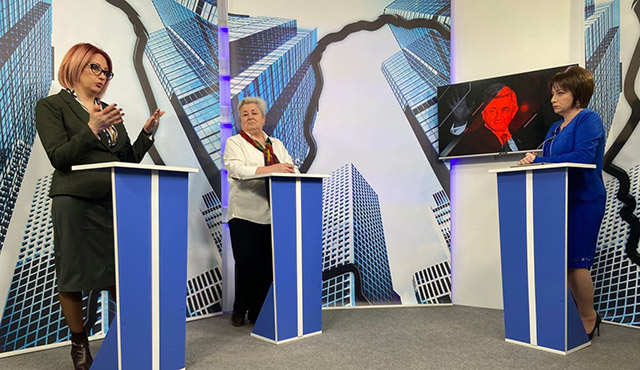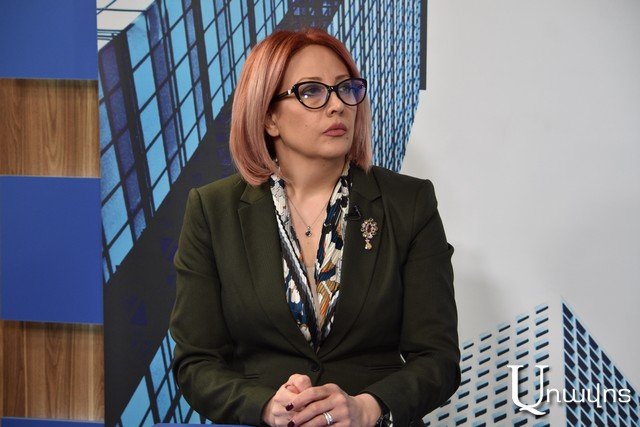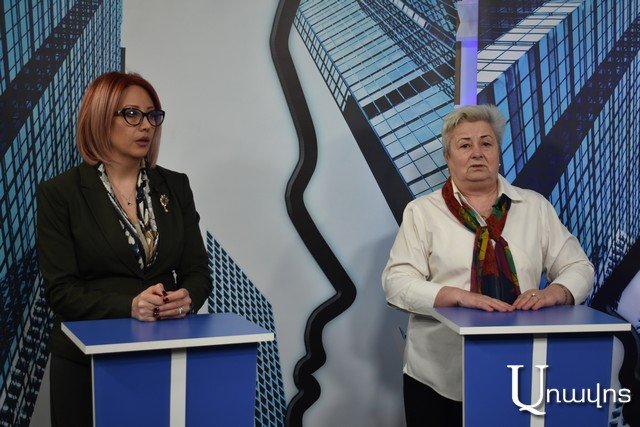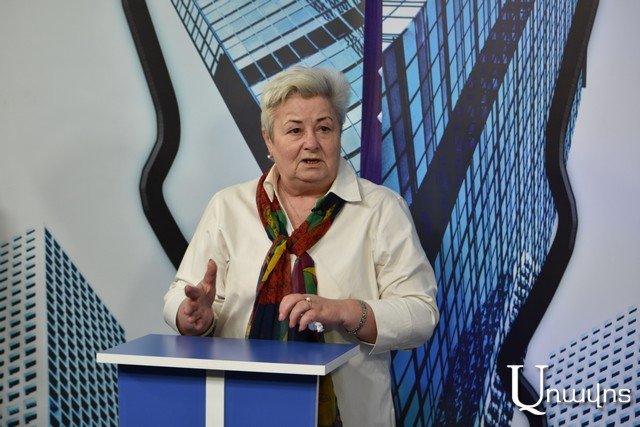According to official data, after the 2020 war, at least 1,456 famous monuments remained under the control of Azerbaijan, including 161 monasteries/churches and 591 khachkars. On February 3, Azerbaijani Minister of Culture Anar Kerimov announced that the Azerbaijani government had formed a “working group of specialists in Afghan history and architecture” to remove “fake Armenian traces” from Albanian architectural monuments. Earlier, the President of Azerbaijan Ilham Aliyev, visiting the Holy Mother of God Church in Hadrut, stated, “Just as the Armenians desecrated our mosques, so they desecrated the old Albanian temples. But we will restore them. All these writings are fake; they were added later.”
From the concerns voiced by the guests of Aravot’s “Areresum (Confrontation)” program, which referred to both the actions of Azerbaijan and the reaction of international organizations, let us single out the part that refers to Armenia’s steps. The Foreign Ministries of Armenia and Artsakh, including the Armenian Apostolic Church, condemned the initiative to set up a working group in Baku to delete the Armenian protocols from the churches in the territory under the control of Azerbaijan. Is there a serious and adequate response at the state level? According to Gayane Abrahamyan, chair of the For My Equal Rights educational center and former member of the My Step faction, “What we see in public is quite small, but it is also clear that many processes are not public.”
In this regard, with reservation about the Ministry of Foreign Affairs, the former deputy said, “I think that at least the parliament has many tools in that respect, and this issue should be raised in different parliamentary assemblies.” She further specified that the sittings of the Bureau and Committees of the Euronest Parliamentary Assembly will be held in Yerevan on February 21-22. “And I am very sorry that we do not have an initiative for an urgent announcement there. And that tool is available. Even if the probability of adopting that statement was small, it still needed to be included in the agenda.”
Read also
Gayane Abrahamyan said, “When talking to former colleagues, when I ask if they’ve written to them or informed them constantly about what is happening, they say, well, they know. No, they do not know. You have to inform them every day. It is not that the deputies sitting in the European Parliament watch the news of Armenia every day or watch what distortions Aliyev makes on a daily basis.”
The other guest of the “Areresum” program, ethnographer, Caucasus expert and Ph.D. in Historical Sciences Hranush Kharatyan, in response to the question of whether in her opinion those efforts are enough and if she sees that all the international platforms where Armenia has a voice are used, answered, “No, I don’t think it is enough. I think that at the moment, at least the Ministry of Foreign Affairs, and it would be good if the relevant committee of the National Assembly, had specialists at least temporarily who follow the process on a daily basis. The diplomatic response must be filled with correct, capacious, scientific, and substantiated material.”
Gayane Abrahamyan suggested another step. “We also have another opportunity, which is again in the domain of the Ministry of Foreign Affairs. It is the visit of the UN Special Rapporteur on Cultural Affairs.”
Hranush Kharatyan stressed, “We must have a program. We can’t constantly contradict them. We can not work by their (Azeris’- edited) logic.”
Anna ISRAELYAN

























































